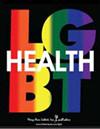纽约市性与性别少数群体成年人对 COVID-19 的了解。
IF 3.5
2区 医学
Q1 PUBLIC, ENVIRONMENTAL & OCCUPATIONAL HEALTH
引用次数: 0
摘要
目的:本研究描述了纽约市(NYC)性与性别少数群体(SGM)成年人 COVID-19 疫苗信息的来源和 COVID-19 知识。研究方法:在 2021 年 6 月 25 日至 12 月 1 日期间,纽约市的 986 名 SGM 成人完成了一项在线调查。参与者从 10 个选项中选出了他们获得 COVID-19 疫苗信息的前三个来源。我们还使用 14 个项目的问卷将参与者分为 COVID-19 知识水平低和高的两类。我们描述了知识来源,然后进行了双变量和多变量逻辑回归,以确定与更多知识相关的特征。结果参与者的平均年龄为 29 岁(18-68 岁不等)。只有 12.5% 的人认为他们的医疗保健提供者是 COVID-19 疫苗的主要信息来源。社交媒体(54.9%)和电视新闻频道(51.4%)被认为是 COVID-19 疫苗的主要信息来源。对 COVID-19 疫苗的了解程度一般,8 个问题中有 4 个问题的正确回答率约为 70% 或以上。在多变量逻辑回归模型中,至少受过一些大学教育(调整赔率比 [aOR]:2.34,95% 置信区间 [CI]:1.55-3.52)、获得硕士学位(aOR:3.28,95% 置信区间 [CI]:1.93-5.57)、家庭年收入为 25,000 美元-49,999 美元(aOR:1.68,95% 置信区间:1.14-2.46)和拥有医疗保险(aOR:2.12,95% 置信区间:1.51-2.96)与 COVID-19 高知识水平显著相关。结论我们的样本显示 COVID-19 知识水平较高,尤其是受过教育的人和有医疗保险的人。获取健康信息的主要途径是社交媒体和电视新闻频道。本文章由计算机程序翻译,如有差异,请以英文原文为准。
COVID-19 Knowledge Among Sexual and Gender Minority Adults in New York City.
Purpose: This study describes sources of COVID-19 vaccine information and COVID-19 knowledge among sexual and gender minority (SGM) adults in New York City (NYC). Methods: A sample of 986 SGM adults in NYC completed an online survey between June 25 and December 1, 2021. Participants indicated their top three sources of COVID-19 vaccine information from a list of 10 options. Participants were also categorized into low or high COVID-19 knowledge using a 14-item questionnaire. We described knowledge sources, then conducted bivariate and multivariable logistic regression to identify characteristics associated with greater knowledge. Results: The mean age of participants was 29 years (range 18-68 years). Only 12.5% identified their health care provider as a main COVID-19 vaccine information source. Social media (54.9%) and TV news channels (51.4%) were most reported as a main COVID-19 vaccine information source. COVID-19 vaccine knowledge was moderate, with four of eight questions showing correct responses in approximately 70% or more participants. In the multivariable logistic regression model, having at least some college education (adjusted odds ratio [aOR]: 2.34, 95% confidence interval [CI]: 1.55-3.52), attaining a master's degree (aOR: 3.28, 95% CI: 1.93-5.57), reporting a household income of $25,000-$49,999 per year (aOR: 1.68, 95% CI: 1.14-2.46), and having health insurance (aOR: 2.12, 95% CI: 1.51-2.96) were significantly associated with high COVID-19 knowledge. Conclusion: Our sample demonstrated high levels of COVID-19 knowledge, particularly among educated individuals and those with health insurance. Primary access to health information was through social media and TV news channels.
求助全文
通过发布文献求助,成功后即可免费获取论文全文。
去求助
来源期刊

LGBT health
PUBLIC, ENVIRONMENTAL & OCCUPATIONAL HEALTH -
CiteScore
6.60
自引率
6.20%
发文量
80
期刊介绍:
LGBT Health is the premier peer-reviewed journal dedicated to promoting optimal healthcare for millions of sexual and gender minority persons worldwide by focusing specifically on health while maintaining sufficient breadth to encompass the full range of relevant biopsychosocial and health policy issues. This Journal aims to promote greater awareness of the health concerns particular to each sexual minority population, and to improve availability and delivery of culturally appropriate healthcare services. LGBT Health also encourages further research and increased funding in this critical but currently underserved domain. The Journal provides a much-needed authoritative source and international forum in all areas pertinent to LGBT health and healthcare services. Contributions from all continents are solicited including Asia and Africa which are currently underrepresented in sex research.
 求助内容:
求助内容: 应助结果提醒方式:
应助结果提醒方式:


